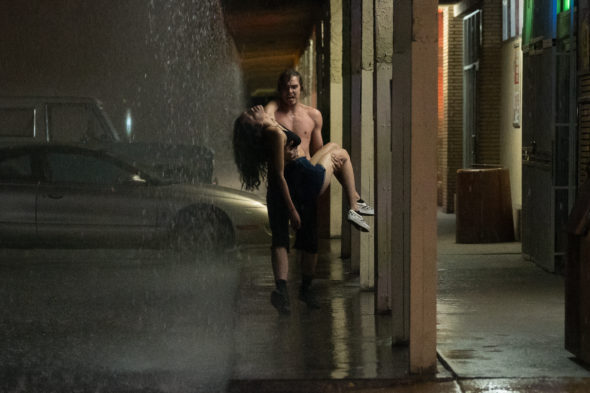Chambers, Netflix’s newest teen sci-fi horror series, has been getting mixed reviews, and I really can’t understand why. As I see all the white males reviewing this 10-part series, I can’t help but question their judgment.
Let me rewind and tell you what the series is about. Sasha Yazzie (Sivan Alyra Rose) is a high school student living in Arizona with her uncle going through life as a typical teenager: trying to navigate losing her v-card, goofing off with her best friend, and trying to find herself. Right up until she has a freak heart attack and gets a transplant from a white girl, Becky, who died that very night. It’s a little predictable, yes, because Sasha starts to have visions and embody parts of her donor that are cryptic, mysterious, and disturbing. The series, which also stars Uma Thurman and Tony Goldwyn as Becky’s mourning parents, unveils the secrets behind Becky’s life (and death), while Sasha is the strong female lead that rises to the occasion to face this invasive trauma.
The show, created by Leah Rachel, takes an artistic approach to metabolizing trauma in ways I haven’t seen before. The idea that someone had to die (Becky) in order for someone (Sasha) to live is a hard truth to deal with, and the pacing of this show with themes of family, isolation, identity, loss isn’t perfect, but it works. To see this story through the lens and eyes of a woman, on and off the screen, is something that kept me watching to the point where I binged the entire series in less than 24 hours. Although the show is obviously a supernatural one, and one that some may deem cheesy, it felt like the narrative was authentic in its dialogue, its relationships and its tone.
I won’t name drop the publications of reviews I read, but many reviewers haven’t addressed one of the things that intrigues me most about the show: Rose is the first Native American actress, at just 19 years old, to ever star in a Netflix series. In addition to a Native American star (of the Apache tribe, specifically), there are Native American writers, as well as Native Americans working in casting on the show. The representation of this nationality is so narrow in Hollywood, it was refreshing to not only see Native American cast members, but also know that there were Native American crew members behind the scenes, too.
The show, set in present day, debunks myths or stereotypes we’ve seen so often (when we do see any representation of Native American life at all) in pop culture: that many Native American Americans are drunk, that they dress a certain way, and that because they live on a reservation, they’re somewhat different than everyday Americans, but Chambers does a brilliant job of executing the realism in Native American people. With each episode, I was electrified by Rose’s acting, as well as the stunning views of the New Mexican desert where the cast and crew filmed, and was sincerely riveted to see this story being told in 2019.
There are parts of the show where I had to rewind and be like, “Wait, what?” (almost in a J.J. Abrams Lost fashion), but it never dispirited me from rolling my eyes and saying, “All right, next.” I was thoroughly interested in the characters, especially Sasha’s patient and badass best friend, Yvonne (Kyanna Simone Simpson), the setting and the progression of the show.
Rose said in an April Refinery29 article, “I don’t wanna be the token Native American. I want the industry to see me and go, ‘Oh my God, we should go to the res to find kids’…I hope it’s just a good spark of representation in the big pot of Hollywood.”
So let these white men (who I also definitely don’t trust on giving me Netflix or really any recommendations) ridicule the sometimes-corny dialogue or murky dream scenes, but I’m happy knowing Sivan Alyra Rose brought this character to life and told a story all too often left out of mainstream media—and if you’re looking for your next bingeworthy watch, Chambers is worth a shot.
Top photo: Netflix / Chambers
More from BUST
4 Key Moments From She The People’s Presidential Forum
It’s Equal Pay Day—But Not For All


